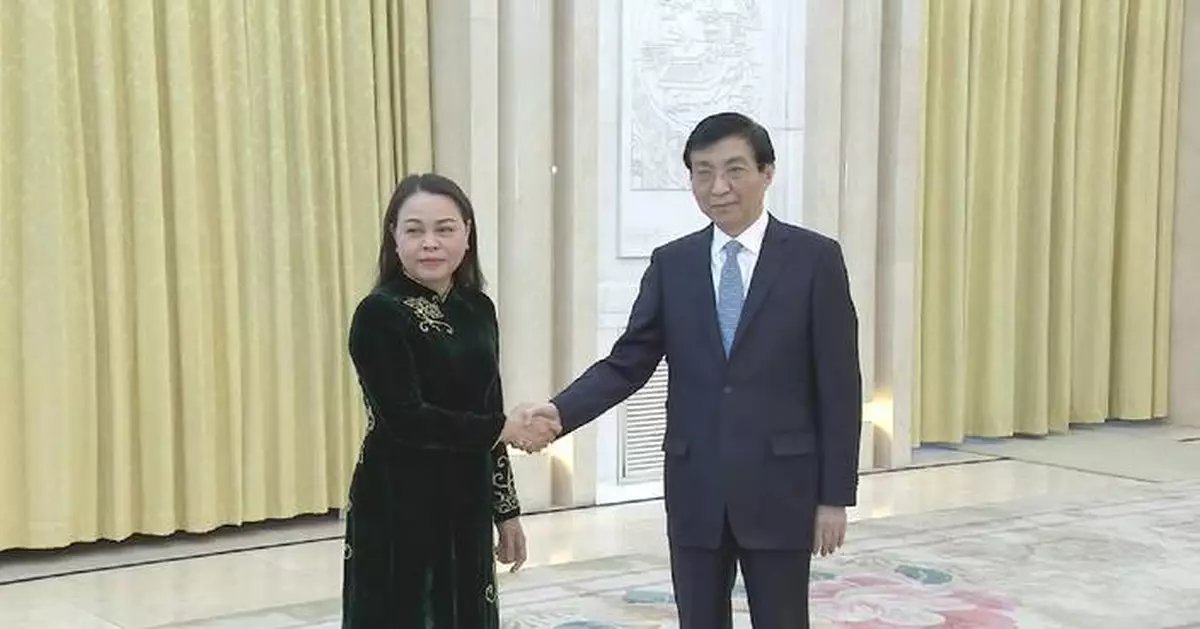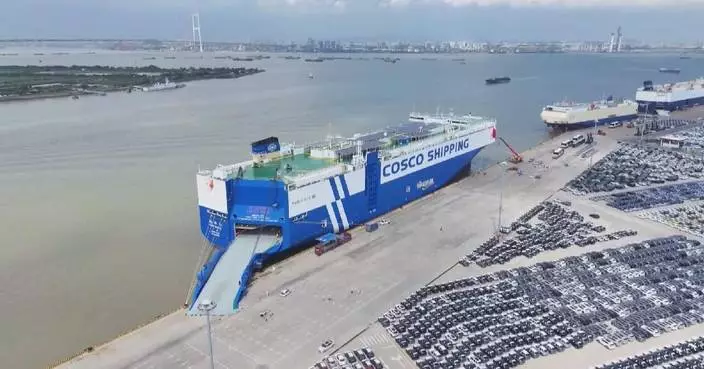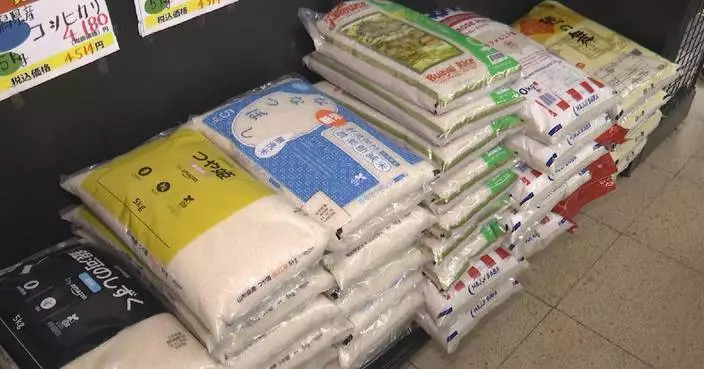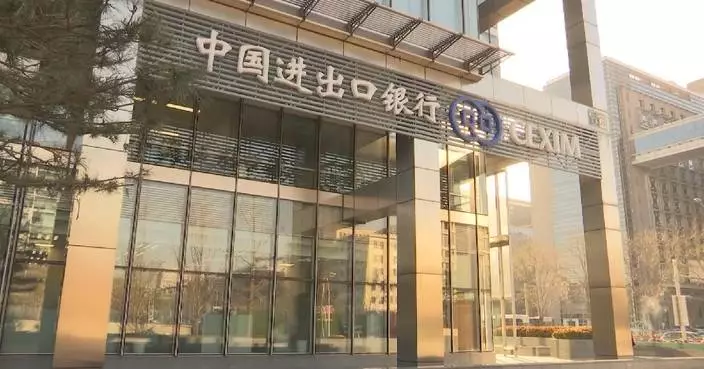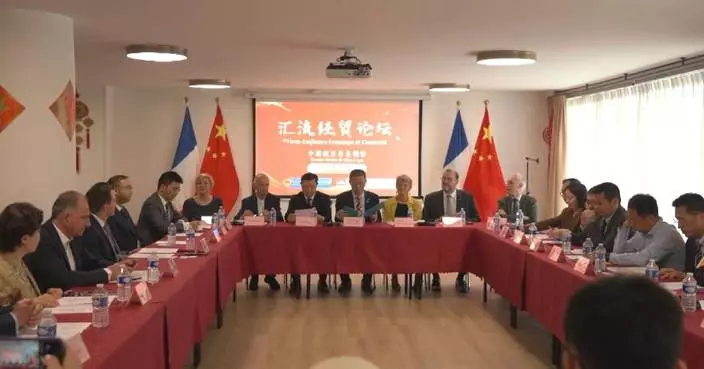Wang Huning, chairman of the National Committee of the Chinese People's Political Consultative Conference (CPPCC), met with Nguyen Thi Thu Ha, a member of the Central Committee of the Communist Party of Vietnam, in Beijing on Thursday.
At the meeting, Wang, who is also a member of the Standing Committee of the Political Bureau of the Communist Party of China (CPC) Central Committee, said that General Secretary of the CPC Central Committee and Chinese President Xi Jinping's state visit to Vietnam earlier this month drew up a new grand blueprint for the construction of a China-Vietnam community with a shared future.
China is willing to work with Vietnam to earnestly implement the outcomes of this visit and solidly advance the building of China-Vietnam community with a shared future that carries strategic significance, Wang said.
Wang also told Nguyen Thi Thu Ha, who is also vice-president and secretary-general of the Central Committee of the Vietnam Fatherland Front, that the CPPCC is willing to work with the Central Committee of the Vietnam Fatherland Front to make contributions to promoting China-Vietnam friendship and strengthening people-to-people exchanges.
Nguyen Thi Thu Ha said that Xi's visit to Vietnam is of historic significance and will surely lead to greater development of bilateral relations.
The Central Committee of the Vietnam Fatherland Front is willing to take the 75th anniversary of the establishment of diplomatic relations between Vietnam and China as an opportunity to strengthen exchanges with the CPPCC, and play an active role in promoting the construction of Vietnam-China community with a shared future, she said.
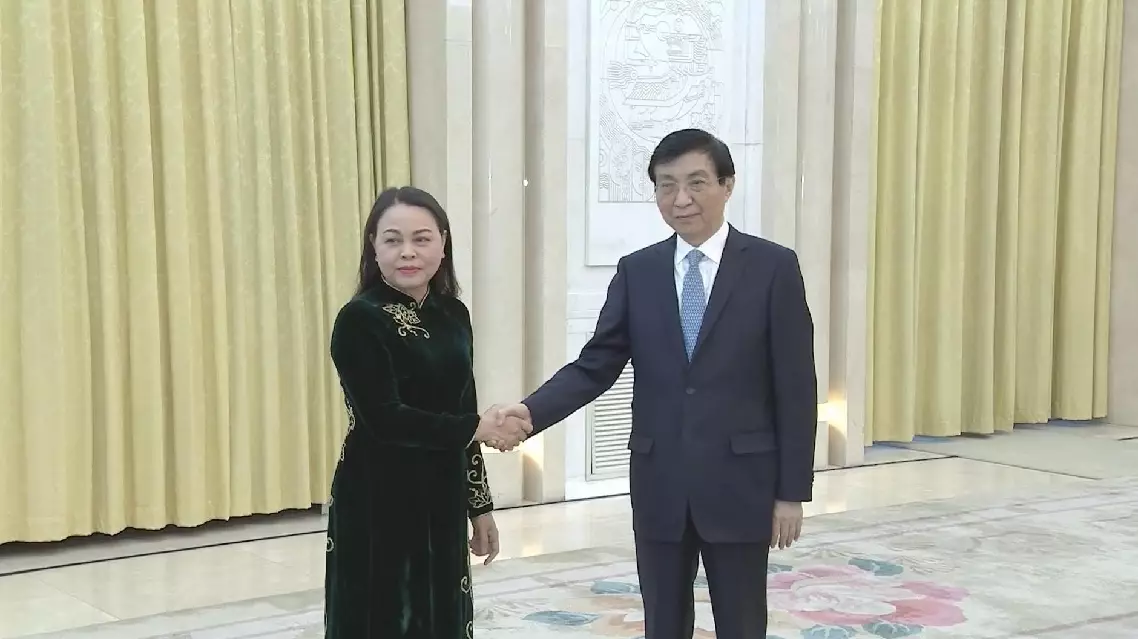
China's top political advisor meets senior Vietnamese official
Shipments from China to the United States have surged since the two countries announced tariff cuts, driving up freight shipping costs for U.S. companies who are rushing to replenish inventories in the 90-day window and prepare for an uncertain future.
Among them is Stonemaier Games, a U.S. tabletop game publisher which has been producing games in China and selling them in the domestic market over the past 13 years.
Jamey Stegmaier, founder and president of the company, told China Central Television that they are trying to ship products out of China as quickly as possible, but the surging demand in freight shipping has made it much harder.
U.S. bookings for container shipments from China to the U.S. had surged by nearly 300 percent as of Wednesday, which has driven up freight shipping prices, according to data from container-tracking software provider Vizion.
"The challenge we are facing now is that a lot of other companies are doing the same thing. So, we are facing shipping delays, port congestions and higher freight shipping costs as a result. I don't have exact numbers on how much the prices will increase. Usually, freight shipping costs are locked in for about a month. So, on June 1, we anticipate seeing those prices go up significantly. And for any shipments that leave China for us in late June, there is the risk that they won't even arrive within the 90-day window. 90 days will fly by," Stegmaier said.
Stegmaier said his company is planning on their winter holiday production run, but it will be much more modest than usual as they don't know how much the tariffs will be at that time.
"The current challenge that we're facing is largely one of uncertainty. I don't even know if the 90-day tariff reprieve will hold. I don't know what will happen after that. So, we are planning for a very uncertain future. And that's the biggest impact, I would say, both on the production side and the inventory that we plan on bringing and holding here in the U.S. at our warehouses," he said.
Questioning the ability of the current U.S. government to build partnerships with other countries, Stegmaier expressed hope that his country will improve its economic ties with other countries and create a more stable business environment.
"So, I'm hopeful for what the future brings in stronger ties between the U.S. and China and any other country. I'm worried the current administration in the U.S. isn't well-equipped to handle that sort of strong, healthy relationship. But I'm hopeful that relationship will improve," he said.
Following a two-day China-U.S. high-level meeting on economic and trade affairs in Geneva, the world's two largest economies announced in a joint statement on Monday a series of measures, tariff modification measures, aimed at easing trade tensions, which took effect on Wednesday.
According to the statement, the United States will place a 90-day pause on 24 percentage points of the additional ad valorem rate of duty on articles of China, while retaining the remaining rate of 10 percent on those articles. It will also remove the additional tariff rates on imports from China announced on April 8 and 9 respectively.
China will suspend 24 percentage points of the additional ad valorem rate of duty on articles of the United States for an initial period of 90 days, while retaining the remaining additional ad valorem rate of 10 percent on those articles. It will remove the modified additional ad valorem rates of duty on those articles imposed by the No. 5 and No. 6 announcements issued by the Customs Tariff Commission of the State Council on April 9 and 11, respectively.

U.S. businesses rush to ship products out of China following tariff cuts



